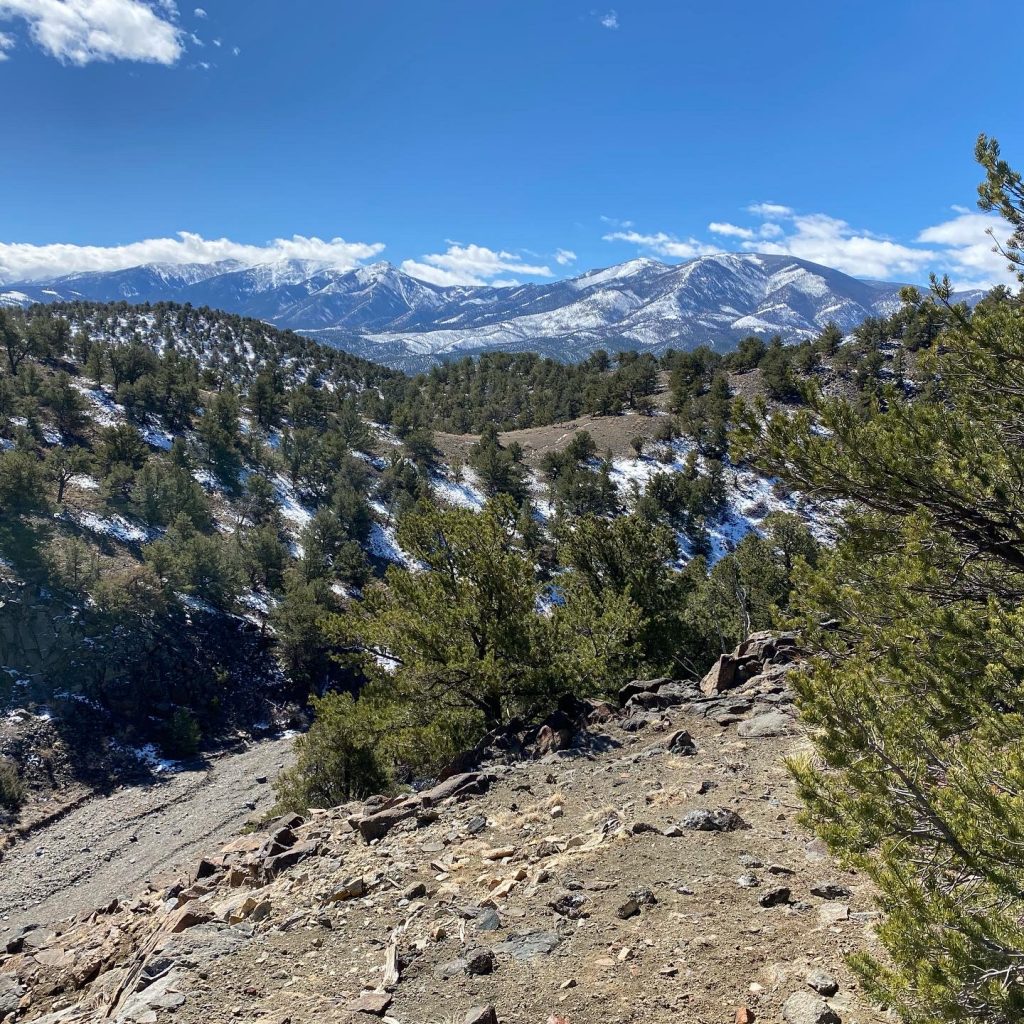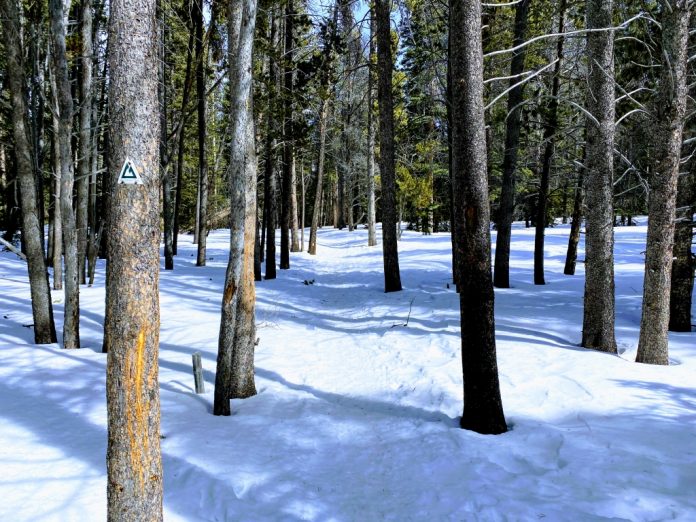Last week I was cruising down Route 285 toward Colorado’s Collegiate Range, heading to the Run Through Time half marathon in Salida to kick off the racing season. It was to be a fun, social weekend, connecting with the running community and testing out my competitive chops.
I pulled off at a gas station and while my tank was filling, I offhandedly checked my e-mail. The race, it turned out, was cancelled due to coronavirus fears. I feel annoyed, and the guilty for being annoyed. Giving up a race I was looking forward to is a small price to pay to help stem a global pandemic.
Still, it was unsettling. When the world changes, we feel uprooted and ungrounded. We create stories about the future, often based on our worst-case fears. We are removed from the nice, everyday progression of our lives.
There’s one place I can almost always get my thoughts together, and that’s in nature. So I pulled into the parking lot at the top of Kenosha Pass, zipped up my sweatshirt, and headed up the Colorado Trail for a few miles. In just moments, I was deep in the woods, far from cable news and airplanes and crowds, The forest had a magical late-winter air, with the first little green buds poking through a floor of melting snow.
I was home now, I realized, though I’d never been on this particular trail. And I’d missed it. There is a safety and a homecoming in nature, a sense that I came from here and I will go back to here. I feel welcomed and absorbed. The trees and hillsides know nothing of coronavirus or rush hour traffic or Donald Trump. They are simply here.

An unknown future is both the curse and the gift of being human. The curse delivers itself in the form of fear, of trying to live out innumerable possibilities in our minds. The gift is that of possibility. The future holds magic, but we don’t always know how and when that magic will show up.
Uncertainty is an opportunity to appreciate the ultimate truth of being a human – which is that we are merely here by the grace of God (or whatever entity, force, or rule we believe brings the Universe into existence). It’s such a cliched statement we rarely have a chance to realize the true force of it. There is no past or future, there is only now. To be human is to be subject to the laws of the cosmos, and those laws dictate that we are here only for a short time, and that it’s impossible to know what lies ahead.
Nature has an ultimate truth, too, and it’s a sort of counterpoint to the uncertainty of being human. Nature is eternal. It exists in an endless cycle of birth and death. Everything is here for a bit, and then isn’t.
The mountains and forests seem to know that. They embody the contradiction of eternal life and certain death every day without fear. They are piled with artifacts of dying – old roots and animal carcasses and brown leaves. But they are profoundly alive as well, glittering sunlight through aspen groves, a deer poking its head furtively around a pine bough.
Here in the midst of the Pike National Forest, a few days before the first day of spring, nature is preparing as normal. Industrious birds zip to and fro overhead, preparing for the busy season ahead. A pinecone falls from its berth above, finally dislodged after clinging to its branch through the winter. A tiny green bud appears on the seemingly dead branch of a fallen pine. It’s the crackle and pop of the eternal cycle of life and death.
I’m just grateful to have had the opportunity to stop for a moment and see it.












